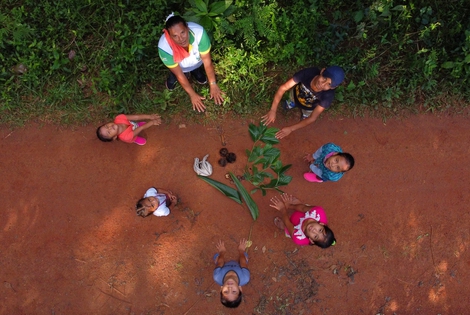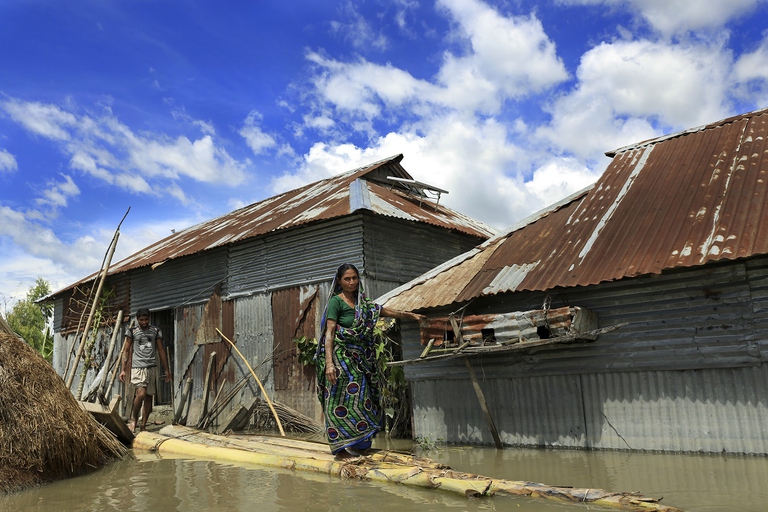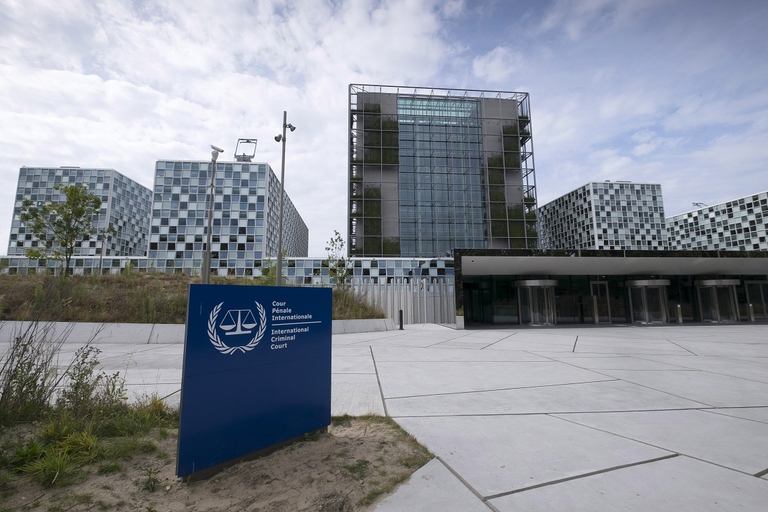
The Amazon became an alternative classroom during the pandemic. Now, the educational forest in Batraja, Bolivia, lives on to teach children and adults the value of nature.
Il land grabbing, la deforestazione e altri crimini ambientali sono entrati a far parte della lista dei reati classificati come crimini contro l’umanità, secondo la Corte penale internazionale.
Wiping out forests, contaminating rivers, and seizing indigenous lands are crimes that not only affect the environment and local communities, but also all human beings.
The International Criminal Court (ICC), based in The Hague in the Netherlands, has announced that the destruction of the environment and landgrabs can now be considered as crimes against humanity. This represents a historic decision considering that the ICC – the highest judicial authority for international crimes – will consider environmental crimes just like genocide and war crimes.
One of the most serious crimes is land grabbing. It is defined as large-scale land acquisitions that happen without the consent of communities that rely on those lands for their survival. Land grabs, mainly at the hands of multinationals, have great social consequences and force entire communities to abandon their homes, leaving farmers hungry. If people refuse to leave, they’re forcibly moved. This is what ICC will try. Indonesia, Malaysia, and Papua New Guinea are the countries most affected by this phenomenon.
The last straw that led the ICC to act is land grab in Cambodia. Businessmen and politicians are involved in the case being examined by ICC prosecutor Fatou Bensouda. She reopened a 2014 investigation on Cambodia’s government, accused of evicting 350,000 people from their home and forcing them into poverty.
Along with land grabs, the ICC will also prosecute crimes that are committed by means of, or result in, the destruction of the environment, the illegal exploitation of natural resources or the illegal dispossession. “Company bosses and politicians complicit in violently seizing land, razing tropical forests or poisoning water sources could soon find themselves standing trial in The Hague alongside war criminals and dictators,” said Gillian Caldwell, executive director of the advocacy group Global Witness, British NGO that fights to protect human rights.
For the ICC to prosecute criminals, these have to come from one of the 139 countries of the Rome Statute. However, some of the main countries responsible for important social and environmental violations have not ratified the statute, including China, India, Indonesia, and Ethiopia.
Siamo anche su WhatsApp. Segui il canale ufficiale LifeGate per restare aggiornata, aggiornato sulle ultime notizie e sulle nostre attività.
![]()
Quest'opera è distribuita con Licenza Creative Commons Attribuzione - Non commerciale - Non opere derivate 4.0 Internazionale.
The Amazon became an alternative classroom during the pandemic. Now, the educational forest in Batraja, Bolivia, lives on to teach children and adults the value of nature.
A special report from the Yuqui territory delves deep into the dreams, challenges, joys and sadness of one of Bolivia’s most vulnerable indigenous groups.
The Yuqui people of the Bolivian Amazon fight not only to survive in the face of settlers, logging and Covid-19, but to preserve their culture and identity.
Jair Bolsonaro is accused of crimes against humanity for persecuting indigenous Brazilians and destroying the Amazon. We speak to William Bourdon and Charly Salkazanov, the lawyers bringing the case before the ICC.
Our species took its first steps in a world covered in trees. Today, forests offer us sustenance, shelter, and clean the air that we breathe.
Activists hail the decision not to hold the 2023 World Anthropology Congress at a controversial Indian school for tribal children as originally planned.
Autumn Peltier is a water defender who began her fight for indigenous Canadians’ right to clean drinking water when she was only eight years old.
The pandemic threatens some of the world’s most endangered indigenous peoples, such as the Great Andamanese of the Andaman and Nicobar Islands in India.
The Upopoy National Ainu Museum has finally opened. With it the indigenous people of Hokkaido are gaining recognition but not access to fundamental rights.










